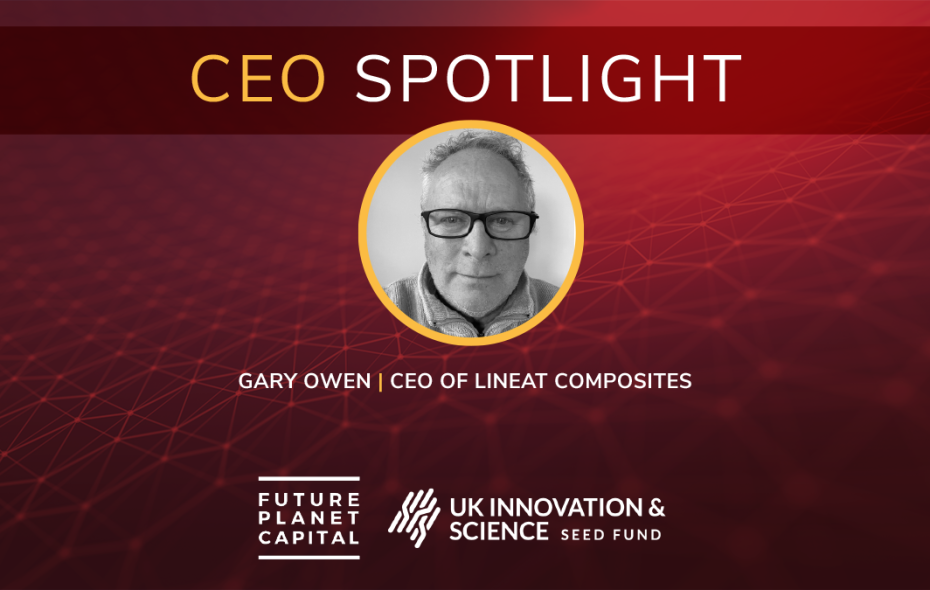
About Lineat:
About Gary Owen:
Why is carbon fibre important?
As the world transitions towards hydrogen storage, there is increasing demand for storage vessels which are made from carbon fibre. It’s predicted that demand for carbon fibre is going to outstrip supply in 12 to 18 months. We are offering a less-expensive alternative to virgin carbon fibre and have created a technology called AFT (aligned formable tape) which allows re-use and recycling of carbon fibre across industries.
AFT tape can enable the manufacture of more complex and geometric shapes and can even produce them at a higher quality than the original material. Aerospace engineers could use our carbon fibre technology for third level structures such as seats in aeroplanes, reducing weight and cost of the material, but there are other widespread uses for the technology. It could be used as a direct substitute for continuous fibre UD tapes in existing supply chains for various markets including sports, marine, automotive, and aerospace.
What role can Lineat play in the circular economy?
At the moment 95% of carbon goes into landfill and there's no way of recycling that carbon other than grinding it up and using it in concrete. However, the concrete industry doesn’t particularly like using carbon fibre in their product. Instead, AFT allows us to complete the circle with carbon fibre manufacturing and build new products out of old carbon fibre materials.
We recently took a broken carbon fibre tennis racket, reclaimed the fibres and aligned them in the Lineat system. We partnered with Wilson's R&D lab and for the first time created a recycled carbon fibre tennis racket.
What has been one of the hardest challenges with bringing the AFT technology to market?
Other than developing the product, one of the toughest challenges has been convincing people to believe in the technology because it’s new and relatively unheard of. This was particularly a challenge when seeking investment, but we've overcome that through market validation, which we're undergoing at the moment.
How has UKI2S helped Lineat?
Mark White at UKI2S has been extremely supportive, and not just from the funding perspective. When we were looking for seed funding, we wanted to bring on board well-rounded people who can support us in different respects. UKI2S has helped us reach out to great people and introduced us to key contacts.
What is your advice for new CEOs or entrepreneurs?